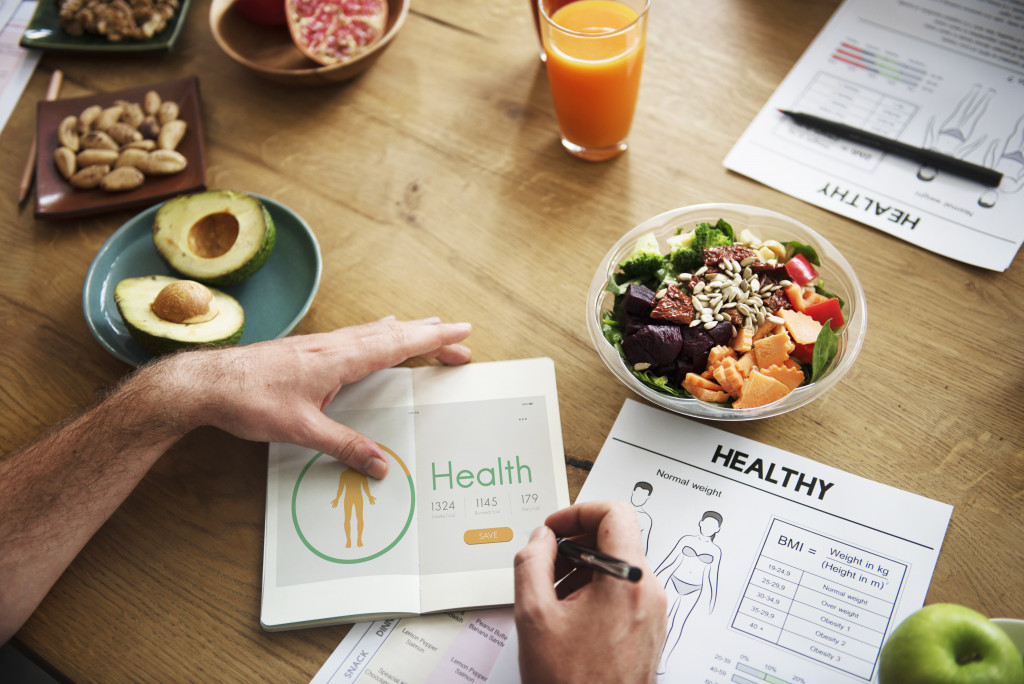Deciding to have a baby with your husband or partner can be a fun, exciting, and big step in your marriage and your new life. But before you even try to conceive, you need to ask yourself if you’re ready for this baby, not just emotionally but physically too. Keeping fit isn’t just good for your own health, but for your future baby too.
So, here are some health considerations to take note of before you try for a baby, just to make sure that you get the smoothest and most stress-free experience possible.
Watch your weight
Your weight can affect your fertility, as well as possibly cause complications during the pregnancy. Being both overweight and underweight can affect the amount of estrogen your ovaries produce. In particular, women who are overweight or have a larger BMI (body mass index) may have problems conceiving, experience complications in the pregnancy, and have an increased risk of giving birth to a baby with birth defects. Underweight mothers face their own risks as well, such as hemorrhages, anemia, and other pregnancy complications. To be safe, stay clear of both extremes.
While there is no one ‘right’ weight that’s ideal for pregnancy, having an average weight or BMI is always best. What ‘average’ could mean differs from person to person so consult with your doctor or healthcare provider about what your ideal pre-pregnancy weight is before you try for a baby. Remember that you will gain weight in your pregnancy whether you want to or not, so prepare yourself for that.
Exercise
If you’ve been neglecting your exercise for a while now, it might be time to hit the gym and try to be active again. If you already are, then keep it up. Having an active lifestyle can increase fertility, lessen your weight gain and the pain you get while pregnant, and overall makes sure that you and your baby are as healthy as possible throughout the whole process. It also decreases any possible health risks and birth defects. If you’re over or underweight, getting in the right shape before you get pregnant is a must.
The only thing you need to be careful of is overdoing it. Don’t overexert yourself or go beyond what your body is capable of doing. Exercise is important, but so is rest. Be aware of your limits and try not to push your luck.

Monitor your diet
You probably know this already but there are some things that aren’t good for pregnant mothers to consume, such as coffee, alcohol, and raw fish or fish high in mercury like tuna and marlin. While you’re not exactly pregnant yet, it can be good to watch what you eat while you’re trying to get pregnant. What you eat can affect your fertility, research shows, and it’s best to start watching your diet even before pregnancy so you get used to eating the right food and don’t succumb to any temptations.
Would-be mothers should avoid caffeine, alcohol, foods high in sugar, and processed soy. If you’re not sure if something is good for you to eat or not, it’s always best to avoid any heavily processed food, such as processed meats and canned goods, and go for healthier and more natural options, such as fruits, vegetables, and sources of protein like eggs.
Be aware of other existing conditions
If you have any other existing health conditions, be aware of how they can potentially affect your pregnancy. For example, if you have severe scoliosis, you might experience more back pains, difficulty breathing, and other weight-bearing issues when you become pregnant. Thankfully, scoliosis has no other worse effect on pregnancy, and mothers with scoliosis can still safely deliver healthy babies. But just to be sure, you might want to have your adult scoliosis treated before and possibly during your pregnancy to save yourself from any additional pain and discomfort.
Other chronic health conditions, such as diabetes, asthma, high blood pressure, and autoimmune diseases, could affect your fertility and increase the risk of problems in your pregnancy. Existing mental health conditions, such as depression and other diagnosed mental illnesses, might also present some trouble.
Consult with the proper health officials about your existing conditions and ask them how it may affect your pregnancy, as well as what you can do to lessen its effects or prevent it entirely. It’s best to be prepared for anything and taking care of your current health conditions before attempting something as big and life-changing as pregnancy ensures fewer problems along the way.

